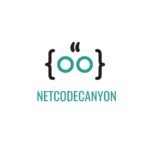In today’s rapidly evolving healthcare landscape, medical software development stands at the forefront of innovation. As technology becomes an integral part of medical practices, the demand for sophisticated software solutions that enhance patient care and streamline operations is surging. From electronic health records to telemedicine platforms, these digital tools are transforming how healthcare providers deliver services.
Medical software development isn’t just about coding; it’s about understanding the intricate needs of healthcare professionals and patients alike. Developers must navigate a complex regulatory environment while ensuring the highest standards of data security and patient privacy. This intersection of technology and healthcare presents unique challenges but also offers immense potential for improving outcomes and efficiency.
As the industry continues to grow, the role of medical software becomes increasingly critical. By harnessing cutting-edge technologies, developers are crafting solutions that not only meet the current demands of the healthcare sector but also anticipate future needs, paving the way for a more connected and efficient healthcare system.
Medical Software Development

Medical software development focuses on creating applications that support healthcare services. It involves designing systems for patient management, electronic health records (EHRs), medical imaging, and telemedicine. Developers work closely with healthcare professionals to understand their needs, ensuring that the software solutions align with clinical workflows and improve patient outcomes.
Regulatory compliance is a key aspect. Developers must adhere to standards like HIPAA in the US, which ensures the protection of patient data. Compliance with these regulations is crucial for maintaining trust and security in healthcare software.
Data security is paramount, given the sensitive nature of medical information. Encryption, access controls, and regular security audits are essential practices to protect patient data from unauthorized access and breaches.
Integration with existing systems is another vital component. Interoperability allows different software systems to exchange and interpret shared data seamlessly. This capability is critical for coordinating care across different providers and improving healthcare delivery efficiency.

The development process also incorporates user experience design, focusing on intuitive interfaces for healthcare professionals. Proper design minimizes errors, enhances engagement, and supports faster decision-making, ultimately contributing to better care delivery.
Medical software development continuously evolves to meet emerging challenges. Innovations like AI and machine learning are increasingly adopted to automate processes, analyze data, and provide predictive insights, benefiting both patients and providers.
Trends in Medical Software Development
Medical software development is rapidly advancing, shaping the future of healthcare through innovative solutions. Key trends include the integration of artificial intelligence, machine learning, and telemedicine technologies.
Artificial Intelligence and Machine Learning
Artificial intelligence (AI) and machine learning (ML) are transforming medical software development by enhancing diagnostic accuracy and personalizing treatment plans. AI-driven analytics enable precise image analysis, supporting radiologists in identifying anomalies with increased efficiency. ML algorithms, trained on vast datasets, predict patient outcomes and optimize resource allocation in healthcare facilities. These technologies empower providers to deliver proactive, tailored patient care while mitigating risks.
Telemedicine Solutions

Telemedicine has revolutionized patient care, especially with the surge in demand for remote healthcare services. Medical software development now focuses on creating robust telemedicine platforms that enable real-time consultations and patient monitoring. These platforms ensure secure communication, adhering to strict data privacy standards, and integrate seamlessly with electronic health records (EHRs) for comprehensive care delivery. Telemedicine solutions ensure continuity of care, particularly in remote areas, enhancing access to quality healthcare services worldwide.
The Challenges and Rewards of Medical Software Development
Medical software development is a transformative force in healthcare, driving advancements that enhance patient care and operational efficiency. By understanding the needs of healthcare professionals and patients, developers can create solutions that are not only innovative but also compliant with stringent regulatory standards. The integration of cutting-edge technologies like AI and telemedicine paves the way for personalized and accessible healthcare services. As developers navigate the complexities of interoperability and data security, they are shaping a future where healthcare is more connected and effective. Embracing agile methodologies and robust quality assurance practices ensures the delivery of reliable and secure medical software solutions.

